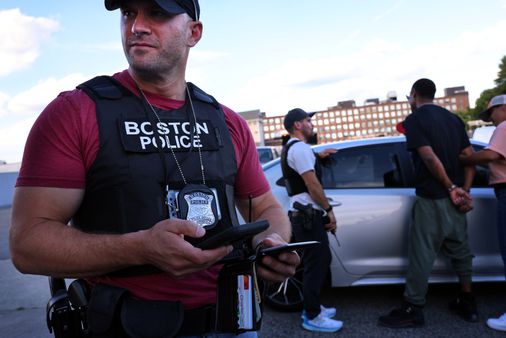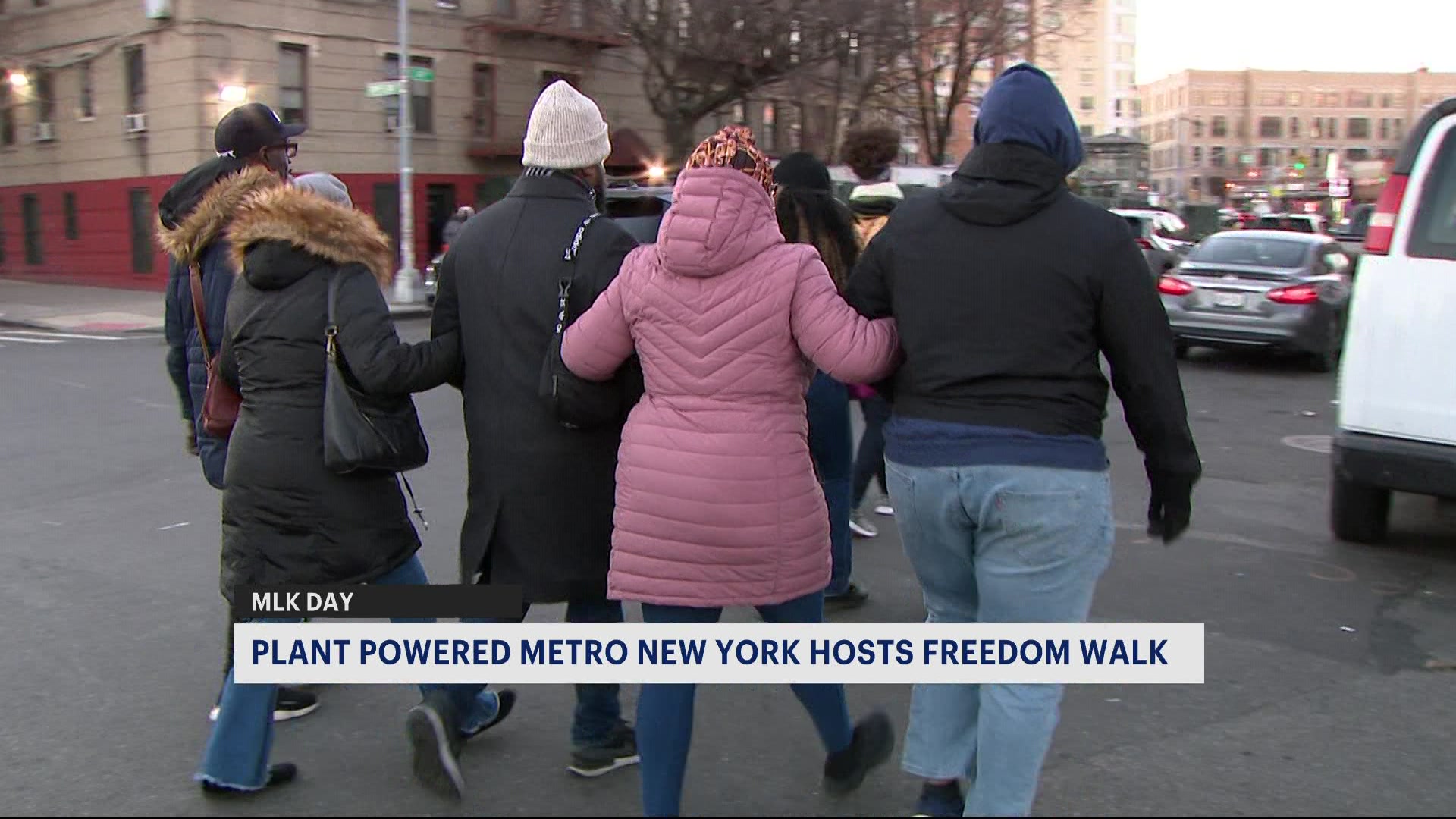[ad_1]
Linsky, 40, is part of the Boston Police Department’s street outreach unit, a specialized team whose officers are dedicated to linking people struggling with substance use disorder and mental illness to social services, focused less on incarceration than treatment and housing. A former mental health worker who felt called to join the police after helping officers respond to psychiatric emergencies, Linsky brings years of crisis intervention training and experience that define his policing philosophy.
“These were always things I cared about: counseling and talking to people and hearing their stories and wanting to be helpful… [and] those skills never really leave you,” he explained. “This unit in and of itself is a testament to our commitment to recognizing that substance use and mental health and homelessness, all of this is now a part of policing.”
To Boston City Councilor Frank Baker, Linsky is “the cop of the future,” someone trained to recognize emotionally distressed behavior and defuse emotional situations “without escalating them.”
Baker said his family’s history of heroin addiction has made him a staunch advocate for street outreach, and when he was introduced to Linsky through street outreach head Lieutenant Peter Messina, Baker immediately recognized him as a “model for real police reform and community policing.”
Linsky grew up in a suburban middle-class home in Milford, his mom a nurse and dad a teacher. Coming out of Penn State University with a psychology degree, he knew only that he liked people and wanted to help them. He liked nature, too, and a few stints at inpatient treatment facilities for troubled youth led him to become a wilderness therapy instructor in New Hampshire, “taking groups of at-risk kids in the woods and teaching them survival skills,” he said.
For several years, Linsky roved across the country doing similar work, going as far as San Diego before returning home to earn his mental health counselor degree at the University of Massachusetts Boston. There he interned and then worked for the Boston Emergency Services Team, eventually becoming the program’s first clinician to partner with police officers in responding to mental health emergencies. The co-response program is now a citywide public health initiative, but at the program’s outset in 2011, Linsky recalled that many officers were skeptical.
“There was some trust that had to be built on both sides,” he said. “Towards the beginning, people were trying to figure out, ‘Well, what is this guy’s deal, why do we need him around? What is it he can do for us that we aren’t already doing?’ ”
But over the next decade, the department made “light-years” of progress, he noted. In addition to the co-responder program, the department now also has its own crisis intervention training for officers, which Linsky helped develop and co-teaches.
“When we started, I was one guy trying to figure it out,” he said. “Ten years later, Boston has really embraced the holistic mental health/substance use component of what policing is.”
As the department warmed to the importance of mental health training, Linsky fell in love with the camaraderie and challenges of policing.
“Everyone around me was like, ‘Dude, just be a cop. You can theoretically do the same thing [you do now],’ ” he said. “The more and more people told me that, the more I thought, this is actually starting to make sense.”
Kate Moore, director of emergency services at the North Suffolk Mental Health Association, shared a desk with Linsky nearly a decade ago — while both were still working in outreach — and said she “always knew he could do either, or both, and that’s what makes him a good officer.”
Moore now works with officers across northern Suffolk County, and said many of them remind her of Linsky.
“They follow the laws that they need to, but they also understand that there’s more to a person than the crime or the situation that they’re in,” she said.
Though a latecomer to the police academy at 35, Linsky excelled there, winning a physical fitness award that allowed him to choose his first assignment. He picked B-2 in Roxbury, one of the city’s busiest districts, and found that despite his desire to be “just a cop for a while,” his crisis intervention training conditioned his response to every emergency call, from horrific crimes to minor offenses.
“Recognizing that even the simple thing of being pulled over at a traffic stop for some people is an incredibly anxiety-provoking event, one of the things we can do is put people at ease in that moment,” he said. “This might sound really stupid, but I used to open with a joke when I’d pull people over… because I can be aware of my surroundings, be tactically savvy, and also make some sort of offbeat comment about their sandwich to establish some sense of humanity.”
After roughly four years in Roxbury, Linsky was transferred to street outreach. In the beginning, he had typical outreach responsibilities, such as handing out clean needles or trying to connect people to addiction recovery programs. Faces that once seemed fleeting became familiar, and he learned to recognize many of the people who have frequented Mass. and Cass for years.
“You get to know them a little bit personally, you get to know some of their family that’s looking for them, but people don’t burn one bridge to end up out there. You burn all your bridges,” he said. “This is the last stop on the train; it doesn’t get worse than this. People either get better from here or they die.”
The occasional silver linings keep him going. He remembers reuniting a woman with her sister after months apart, sitting in the rain and hearing her story for the first time: addicted to opioids on and off for years, children taken away by protective services, good men and bad men who faded in and out of her life.
He called her sister, who said she would come right away. But the woman was hesitant, he recalled, her face filled with the apprehension of someone “so physically addicted” that she couldn’t imagine leaving opioids behind.
“’Just go hug your sister, and whatever happens after that is what happens,’” he told her. From a distance, he watched them embrace before the sister’s husband rushed them into the car and drove off into the gray. “I remember thinking, ‘God, this place is so hopeless, but I finally feel like I did something nice today.’ ”
Linsky’s work in the street outreach unit is now focused on sex trafficking, intercepting networks of pimps and traffickers while guiding the women to recovery centers. Although he counts the community relationships he has developed as one of the most meaningful parts of the job, Linsky said he prefers big-picture projects because of the opportunity they provide to interrupt the system, instead of slapping a Band-aid on a bullet-sized problem.
“There’s no shortage of resources available to us,” he said, but the pull of addiction is overwhelming. “It’s so hard to get people to make a good choice.”
Ivy Scott can be reached at ivy.scott@globe.com. Follow her on Twitter @itsivyscott.
[ad_2]
Source link


